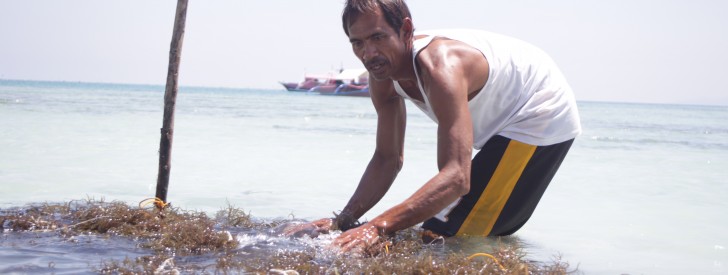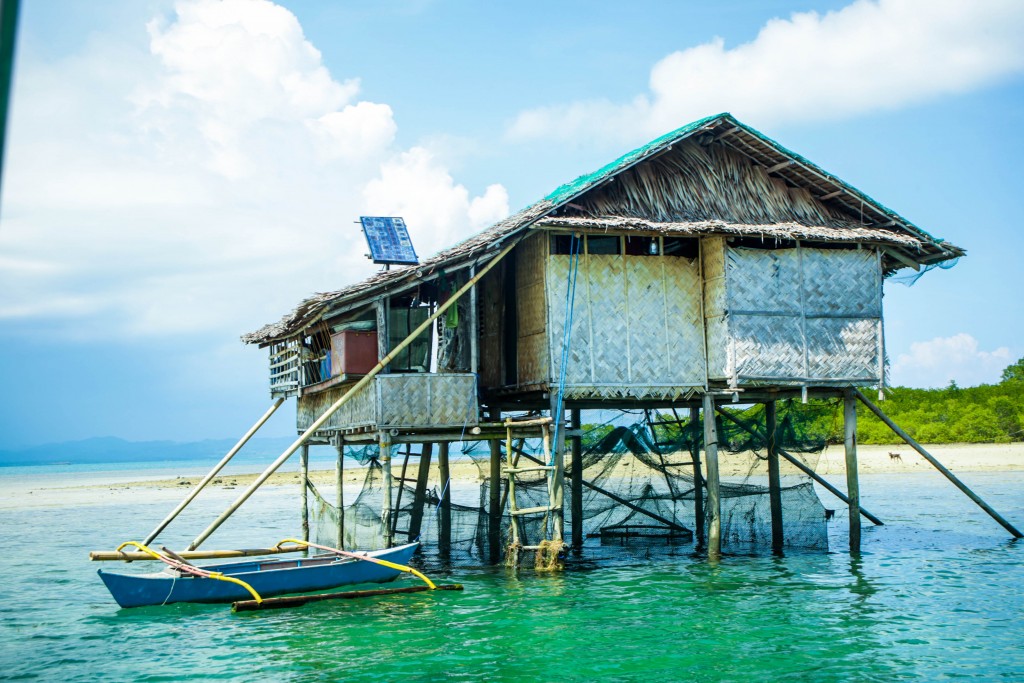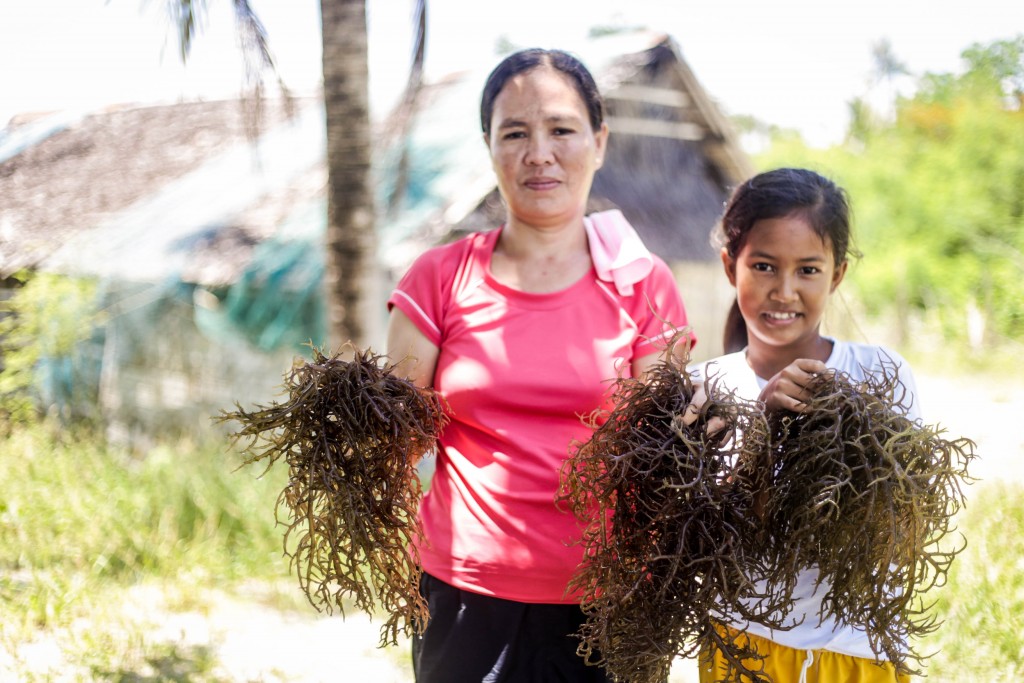 Forty-five-year-old fisherfolk Jonel Vasquez gathers seaweeds on Johnson Island in Roxas, Palawan, the site of the P3.1-million project for start-up seaweeds nursery, production and marketing sub-project under the Department of Agriculture’s Philippine Rural Development Project (DA-PRDP). The intervention will be supported by a Global Environment Facility (GEF) grant on natural resource management that aims to capacitate communities to conserve, protect and revive marine protected areas, fish sanctuaries and other biodiversity areas. Palawan is one of the country's top seaweeds producers, contributing 24% of the country’s total production. With this, the province has chosen seaweeds as their priority commodity to be supported under the DA-PRDP. (Photo by Kathrino Resurreccion, DA-PRDP)
Forty-five-year-old fisherfolk Jonel Vasquez gathers seaweeds on Johnson Island in Roxas, Palawan, the site of the P3.1-million project for start-up seaweeds nursery, production and marketing sub-project under the Department of Agriculture’s Philippine Rural Development Project (DA-PRDP). The intervention will be supported by a Global Environment Facility (GEF) grant on natural resource management that aims to capacitate communities to conserve, protect and revive marine protected areas, fish sanctuaries and other biodiversity areas. Palawan is one of the country's top seaweeds producers, contributing 24% of the country’s total production. With this, the province has chosen seaweeds as their priority commodity to be supported under the DA-PRDP. (Photo by Kathrino Resurreccion, DA-PRDP) DA’s enterprise dev’t initiative to boost Palawan’s seaweeds industry
September 4, 2015
The island province of Palawan will soon reap the benefits of a sustainable seaweeds industry as the Philippine Rural Development Project (PRDP) of the Department of Agriculture (DA), under a World Bank-partnership, is set to implement a seaweeds nursery, production and marketing start-up subproject.
According to Roxas Mayor Maria Angela Sabando, the P3.1-million enterprise development project that will be established in Johnson Island will help farmers and fisherfolk from the marginal areas have their own source of income, or increase incomes from their existing livelihoods.
Palawan Assistant Provincial Agriculturist Romeo Cabungcal said that the project is one of the priority programs of the Palawan provincial government, which aims to help improve the livelihoods of fishers in the province.
“Sa kasalukuyan may 5,000 mangingisda ang umaasa sa seaweeds farming. Sa pamamagitan ng PRDP, inaasahan na tataas ito sa 10,000, at tataas din ang ektarya na nililinang para sa seaweeds farming,” he explained. (Currently, there are 5, 000 fishers who depend on seaweeds farming. Through the PRDP, we expect them to increase by 10, 000, as with the hectares dedicated to seaweeds farming.
“Matutulungan din nito ang lalawigan ng Palawan at tutugon ito para maitaas din ang antas ng ekonomiya, dahil ang Palawan ay nakasasalalay ang ekonomiya sa pagsasaka at pangingisda,” he added (This (project) will also help the province of Palawan economically, as Palawan relies heavily on farming and fishing).
Forty-five-year-old fisherfolk Jonel Vasquez said, “Sa pamamagitan ng proyekto na ito, makakaasa kami na tataas ang kita, dahil ito ay pinagtutulungan ng buong pamilya namin.” (Through seaweeds farming, we expect increased income, as this livelihood will include all our family members.)
Palawan is one of the country’s top seaweeds producers, contributing 24% of the country’s total production. With this, the province has chosen seaweeds as their priority commodity to be supported under the PRDP.
The intervention will also be supported by a Global Environment Facility (GEF) grant on natural resource management that aims to capacitate communities to conserve, protect and revive marine protected areas, fish sanctuaries and other biodiversity areas.
In a recent visit to the project site, World Bank representatives, PRDP project staff and members of the DA Secretary’s Technical Assistance Group (STAG), have firmed up with the province’s proponent group Johnson Island Fisherfolk Association (JIFA), steps to further polish the project’s proposed implementation mechanisms.
It was also highlighted from the site visit that interfacing with other concerned agencies such as the Department of Environment and Natural Resources, Bureau of Fisheries and Aquatic Resources and the Palawan Council for Sustainable Development be sustained especially that the project will be located in a marine protected area, hence, ecological sustainability must be safeguarded.
Agriculture Secretary Proceso Alcala said that under the PRDP, the government ensures that agricultural interventions are ecologically sound as it strictly complies with World Bank-prescribed environmental safeguards.
“We want to give a boost to Palawan’s promising seaweeds industry without compromising the capacity of the project site to provide ecological services. We want this sustainable system to be emulated in our regular programs,” he said.
The PRDP is a six-year national project that aims to establish a modern, inclusive, value-chain oriented and climate-resilient agriculture and fisheries sector. It is implemented through the partnership of the DA, the World Bank and local government units. A team from the World Bank is currently in the country to visit several subprojects to assess the progress of, and address issues and concerns on the implementation of the PRDP. (Jan P. Dacumos, DA-PRDP)


